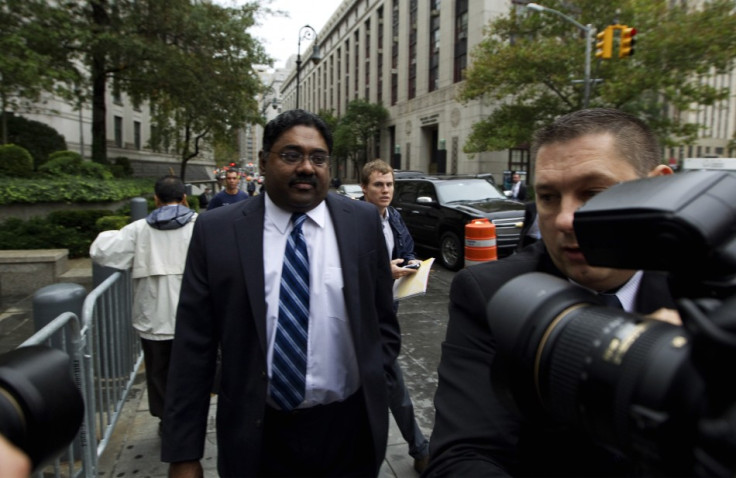Hedge Fund Crook Raj Rajaratnam Accused of Funding Tamil Terror

On Wall Street, Raj Rajaratnam is famous for being a perpetrator in one of the biggest insider trading cases in history. But he's also the subject of another lawsuit that's only just beginning. It involves money, death and terrorists.
Three years ago, Rajaratnam was found guilty of securities fraud involving his Galleon Group hedge fund and sentenced to 11 years in prison. But later this month, attorneys will begin the discovery process for another case that dates even further back.
Rajaratnam, his father and his family's organisation are accused of sending funds to the Liberation Tigers of Tamil Eelam, a US-designated terrorist group that fought for an independent state for the Tamil people in Sri Lanka's decades-long civil war. Rajaratnam, now a US citizen, was born in Ceylon, as the island was then called.
The United States declared the LTTE group a "foreign terrorist organisation" in 1997. Like the IRA and other terrorist groups, the Tamil Tigers drew financing from an ethnic diaspora around the world, who funneled money through various charity fronts.
In October 2009, a group of victims and survivors of LTTE attacks in Sri Lanka alleged that the Rajaratnam family sent millions of dollars to the group, thus indirectly funding a series of suicide bombings between November 2007 and April 2008.
The complaint alleges that Rajaratnam and his father "are members of the global Tamil expatriate community who knowingly and purposefully helped fund LTTE's terror campaign".
Rajaratnam did donate at least $5m to an American charity called the Tamil Rehabilitation Organization between 2000 and 2007. The US government alleged in 2007 that the group was a fundraising front for the Tamil Tigers. Rajaratnam's legal representatives said at the time that he had no knowledge of such a connection.
"We do know that money moved that way, but the issue at trial will be whether he knew," Michael Elsner, an attorney at Motley Rice representing the plaintiffs, told IBTimes US.
The case has been moving slowly. It was delayed by a number of factors, including the presiding judge's retirement. And of course, Rajaratnam is now in jail.
"The timing of it was unfortunate for us because we had been working on the case for so long, and the US government filed their claims first," Elsner said.
Lawyers for both sides will meet later this month to begin the first stages of discovery, which should uncover evidence to be used during a trial.
The plaintiffs are seeking economic damages, since many of the victims were unable to recover after financially after the attacks. For example, one woman who lost her husband had to move out of her house and stay with friends. Businesses that were destroyed would never be the same. But of course, the emotional stakes are high.
"It's also about standing up to make a point of what happened to their loved ones and tell that story," Elsner said, adding that many of the families he represents had lost children. One particularly deadly attack killed an entire high school sports team and their coach.
At this point, Elsner said he expects a trial as soon as 2015. But before that happens he'll have to go through the discovery process, which means tracking down various financial transactions from the past decade. And it's not going to be simple.
"He was a hedge fund investor, so he has a sophisticated sense of how to move money and how to move it in ways that couldn't be detected," Elsner said. "The discovery will be interesting and challenging."
© Copyright IBTimes 2025. All rights reserved.



















